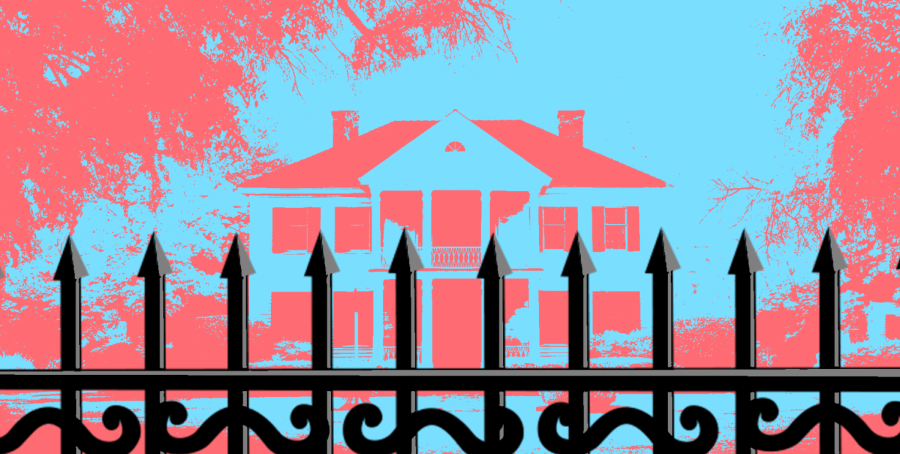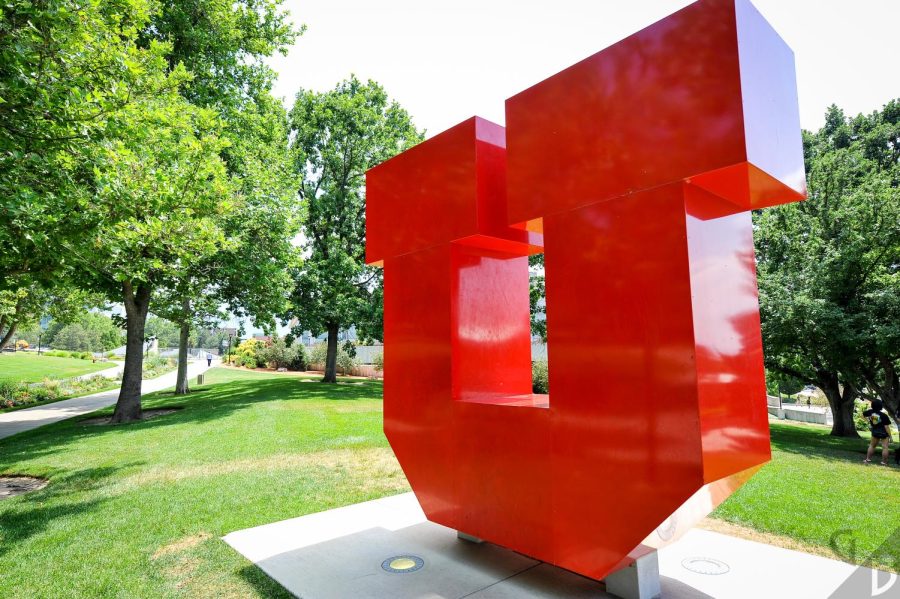Linnabary: Yes, the Governor Needs a Fence
(Graphic by Claire Peterson | The Daily Utah Chronicle)
February 19, 2022
We have all probably seen depictions of the Secret Service, the president’s personal bodyguards, in media — men in black suits and sunglasses with blank expressions. While performing other duties, the Secret Service is responsible for the protection of the president from threats. What may surprise many is that governors often face similar threats to their life and well-being, making security necessary. Here in Utah, Gov. Spencer Cox and Lt Gov. Deidre Henderson are protected by a special, highly-trained division of the Utah Highway Patrol.
Recently, Gov. Cox has received numerous credible security threats, making it necessary for him to have extra security at the Capitol and at his home in rural Utah.
Some have unreasonably expressed that this security is unnecessary, or perhaps more reasonably that the secrecy required to implement these new security measures is unnecessary. Still, the outrage many are expressing at the increase in security provisions for the governor is ludicrous. The Salt Lake Tribune first reported on this story surrounding increased security provisions. The Tribune’s first article covering the issue reported that the construction of a new security fence, security building and carport was initiated.
Furthermore, the Tribune’s first article covering this subject highlighted that it’s not a normal state construction project. What the Tribune claims that makes this abnormal is the lack of transparency. In the article, it says, “There is no reference to the construction of the security building on Cox’s property anywhere in the FY 2021-22 budget approved by lawmakers.” Except for money for such projects was appropriated in both SB3 and SB22. Throughout the news cycle of this story, this issue has been framed as the governor and his allies in the legislature trying to sneak this through the session with malicious intent. This is simply not the case.
The lack of specifics in this case, quite clearly, is for security purposes. In a rare comment, Gov. Cox asserted that leadership in both legislatures is informed of such projects and that any and all security upgrades to both buildings and officials are “included in a single line-item,” and this is the case in SB3 and SB22. As the governor points out, this is so that “bad guys” don’t have access to information that could compromise security.
Transparency in government should always be a priority, and the public should know where public funds are being spent. But to that end, this is a rare and normal exception. The United States Secret service budget and other executive agency protection agencies keep the specifics of their budget closely guarded to protect their principle. This is fundamentally not a break from a clearly set precedent.
The presence of current security threats makes it more imperative that the specifics of improved security infrastructure and personnel be kept confidential. This was demonstrated in a tweet by Gov. Cox, who shared a photo of a bullet mark on what is presumed to be the bulletproof glass of the governor’s mansion with him saying, “To those who believe these types of threats are exaggerated or overstated, I assure you they are not.”
Some have further criticized the governor for his continued presence at his rural Utah home. His role comes with the option to live in the governor’s mansion in Salt Lake City. While he does take advantage of this residence, he also makes it a priority to return to his rural home. Gov. Cox acknowledges that this is “a fair criticism.” But he said that his home in rural Utah keeps him accountable and connected to the community. During his campaign, the governor promised that he would spend as much time in rural Utah as possible. In the same tweet, he said that “for seven years as Lt. Gov, I drove 60,000 miles a year, commuting 200 miles round trip every day to preserve that connection.” Utah is not just Salt Lake City, and the governor is the governor for rural Utah too.
To fulfill this promise in a way that’s safe, these new security measures and confidentiality around them are necessary. Threats against the governor are not a hoax. The criticism that the governor and his security team are trying to hide this from the public with malicious internet falls flat on its face. The secrecy is to preserve security.









